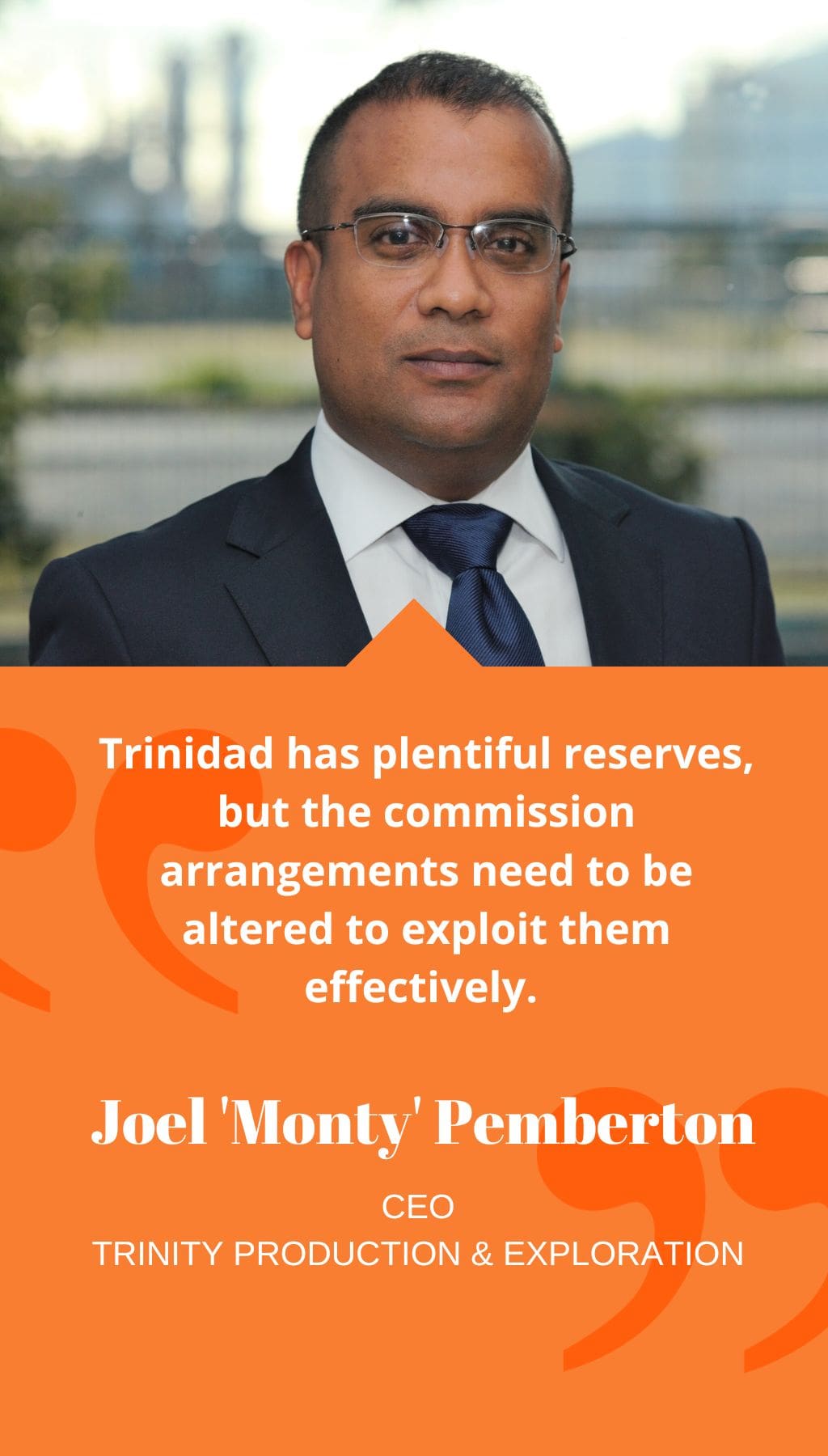
- Trinidad & Tobago | 4 June 2013

Could you give us an overview of Trinity, the Trinidadian oil company?
Trinity is a global leader in the oil industry and has its headquarters based in San Fernando. Founded in 1996 as Venture Production plc, Trinity was listed in London in 2002. Between 2009 and 2012, the company quadrupled in size and rebranded as Trinity Production and Exploration. They are the seventh-largest operator on the island and the only company operating on the east coast, onshore and on the west coast. In 2013, they acquired the Galeota block and are focused on acquiring more acreage.
Have you considered listing on the local stock exchange to provide Trinidadians with some ownership over the company?
Although Trinity aims to encourage local content and provide Trinidadians with ownership over the company, they have not considered listing on the local stock exchange. The decision to list in London was based on the market’s depth, transparency, and liquidity. However, they plan to attract local institutional investors, including pension plans, unitrusts, and money market funds, and may consider US depository receipts or cross-listing.
What are your thoughts on Petrotrin’s farmout program to exploit inactive blocks and thereby encourage greater junior activity?
Trinity has been a pioneer in encouraging greater junior activity, and Trinidad has historically only had large operators on large fields. Trinity has brought this model to Trinidad to stimulate the change required to increase production levels. The recovery rates for the onshore assets are about 12% to 15%, and Trinity believes that even a small increase in recovery rates through enhanced oil recovery (EOR) methods can lead to massive results.
What adjustments do you think need to be made to keep the country more competitive in terms of the fiscal regime in Trinidad and Tobago?
Trinidad has plentiful reserves, but the commission arrangements need to be altered to exploit them effectively. Both the fiscal regime and the commercial arrangements within Petrotrin need to be altered to allow operators to deploy EOR programs effectively. Trinidad needs to spur exploration by providing additional exploration incentives, improving the infrastructure, and focusing on the maintenance of existing assets.
What needs to be done to better integrate the oil industry with local banks?
Local banks in Trinidad and Tobago are very liquid, but they need to be educated on how to engage with the energy sector. Trinity is working to educate local banks by bringing the top analysts from RBC London to Trinidad to host a session on how to value oil and gas companies and structure their finances. Local banks need to build their internal expertise to provide loans to the oil and gas industry, which can be very technical. Trinity’s motto is, “It’s not just about oil,” and they are working to educate the banking sector for the benefit of companies across the industry.
Are you considering participating in any of the bid rounds scheduled for 2013?
Trinity is looking at future onshore bidding rounds, and they have attended the openings of the bidding rounds. They are focused on acquiring more acreage and partnered with Cairn Energy to bid in the recent deep-water rounds. However, they believe the government must put in place the right fiscal and commercial arrangements. Trinity has some exciting times ahead with new acreage, an aggressive drilling program, and the Bayfield reverse-takeover and new listing.














